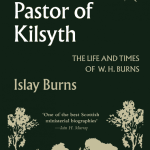This post is part of a series walking through the third volume of Abraham Kuyper’s Common Grace
So government sees in both general revelation and special revelation
- how it should work;
- “the social relationships it must maintain;” and
- “the moral certainties it must honor.” (221)
Government must look to God as its guide, and no one may deny this rule. But should ≠ can. Not all officials do this. For one thing, there’s a lot to do to learn God’s will, and not all government officials are capable of doing so. We don’t drop the rule as a result of this inability, but we do acknowledge the practical obstacle. Obviously it may be ignorance of God’s will because of sin, but it still results in inability. Ignorance doesn’t excuse sin, but it still results in inability.
Even with diligence and the desire to know God’s will, the unregenerate still can’t do it. Heck, many of us who are regenerate can’t–Scripture isn’t a systematic guide to the galaxy. We can find clear principles there, but application may take centuries to explore to explore, involve obscurity, and still result in varieties of interpretation.
So how then?
“…the only real way in which the will of God, as revealed in nature and Scripture, can become the rule and guide for the actions of government at various levels: namely, through people of faith investigating the Scriptures, and especially through scholars among them who show how scriptural principles apply to matters of state. If a wider consensus is formed in this way, so that those who are responsible for drawing up laws and decrees give expression to these principles, then the course of events in the public arena will be tied to this wider consensus. Only in this way, then, can the revealed will of God be realized in the actions of those who govern.” (225)
And still we must leave the official flexibility and remember the importance of culture and custom. The personal study of the magistrate is less important than these general cultural forces.
So it’s not enough for believers to merely pursue conversion and holiness in the church. This defaults policy and ideas to unbelievers. We should all study politics and try to shape that culture, especially through scholarship. But what about in absolute monarchies? Should the Russian Czar not personally pursue God’s Word?
Even in those places there is a culture and set of policy-shapers who are often tied in to the religious tradition. Monarchs in these states still rely on others to govern–whether from personal vice or mere paucity of time. A truly skilled monarch would see the need for the people and the broad spread of the knowledge of Scripture through time and across many minds.
So this view of monarchy is contrary to reality. Christian influence must affect all of government, and must begin with the people in any case. Any influence must come from the church as organism exploring, articulating, and living God’s will, rather than simply letting the nation dechristianize.
Dr. Coyle Neal is co-host of the City of Man Podcast an Amazon Associate (which is linked in this blog), and an Associate Professor of Political Science at Southwest Baptist University in Bolivar, MO













